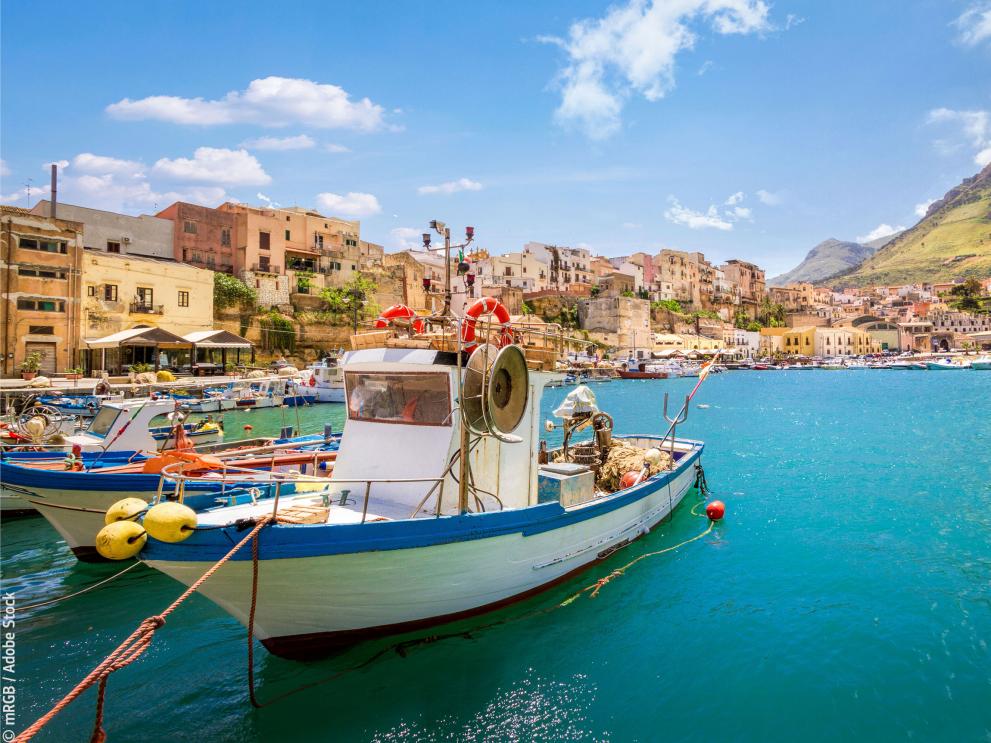
Today, the high-level meeting on the new strategy for the Mediterranean and Black Sea took place under the umbrella of the FAO General Fisheries Commission for the Mediterranean (GFCM). Virginijus Sinkevičius, Commissioner for the Environment, Oceans and Fisheries attended the meeting, together with FAO Director-General Qu Dongyu, as well as the fisheries ministers of GFCM contracting parties.
The participants reaffirmed their political commitments of the MedFish4Ever and Sofia Declarations and endorsed the new GFCM Strategy (2021-2030) with the aim of ensuring the sustainability of fisheries and aquaculture in the Mediterranean and Black Sea in the next decade.
Commissioner Sinkevičius thanked the GFCM Secretariat and its Executive Secretary, Mr Abdellah Srour, for their relentless commitment to the implementation and adoption of the current and the future GFCM strategies. He stated:
With the endorsement of the new GFCM Strategy, today we have crossed another milestone on the path towards sustainably managed fisheries and aquaculture in the Mediterranean and the Black Seas. We have come a long way with the new fisheries governance launched in 2017, under the framework of the MedFish4Ever and Sofia Declarations. Yet we are not at the end of our journey, much more remains to be done.
The Commissioner underlined the need to start implementing the strategy immediately and encouraged regional partners to support the ambitious package of measures the European Union will put forward at the GFCM annual session in November.
Commissioner Sinkevičius emphasised the importance of protecting biodiversity in creating resilience and profitability of the fisheries sector:
Healthy marine ecosystems, with thriving sea life, are the cornerstone of a resilient and profitable sector. Only when we have this in place, will we be able to truly safeguard the livelihoods of coastal communities. The new GFCM Strategy 2030 includes the framework and the necessary tools to ensure a sustainable, just and inclusive future for our fleets and the local communities, while protecting the ecosystems.
With its five main targets, the new GFCM strategy will continue to build on past achievements through measures such as: the adoption of more management plans, ensuring a robust scientific basis for future conservation measures, strengthening the culture of compliance and the fight against illegal, unreported and unregulated (IUU) fishing, and minimising and mitigating the unwanted impact of fisheries on marine ecosystems. In this regard, the new strategy will play a major role in the protection of the marine ecosystems through the “green transition’’ by the adoption of vessel monitoring systems. Furthermore, it will continue focusing on coordinating actions to ensure decent working conditions and properly recognising the role of women in the fisheries and aquaculture sector.
The strategy will be formally adopted at the annual session in November 2021.
Background
On 3 November 2020, ministers and high-level representatives from Mediterranean and Black Sea countries launched the process of “Building a new strategy for Mediterranean and Black Sea fisheries and aquaculture”, sharing their views and defining the main priorities and broad directions to ensure the sustainability of fisheries and aquaculture in the Mediterranean and the Black Sea.
Following this event, the GFCM conducted consultations with a wide array of stakeholders to gather their input and priorities. The EU played an active role in shaping the content of the Strategy. The EU continues to support the implementation of the new GFCM Strategy with a grant of 8 million Euros per year.
On 30 June 2021, the GFCM and WWF Mediterranean Marine Initiative, in collaboration with the European Commission, co-organized a high-level event on advancing the Regional Plan of Action for Small-Scale Fisheries in the Mediterranean and the Black Sea (RPOA-SSF) in the context of the GFCM 2030 strategy. The conclusions of the event will contribute to the discussions on the implementation of the GFCM 2030 strategy, helping to drive priority actions, as well as shaping the Mediterranean and Black Sea regions’ celebration of the International Year of Artisanal Fisheries and Aquaculture (IYAFA) in 2022.
The following parties were represented at the Ministerial Conference: European Commission, 11 EU Member States (Belgium, Bulgaria, Croatia, Cyprus, France, Greece, Italy, Malta, Romania, Slovenia, Spain), 16 third countries (Albania, Algeria, Bosnia and Herzegovina, Egypt, Georgia, Israel, Jordan, Lebanon, Libya, Moldova, Montenegro, Morocco, Russian Federation, Tunisia, Turkey, Ukraine), FAO and the General Fisheries Commission for the Mediterranean.
Related links
Details
- Publication date
- 9 July 2021
- Author
- Directorate-General for Maritime Affairs and Fisheries
